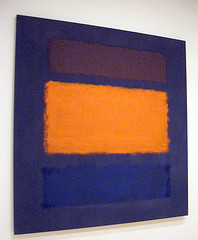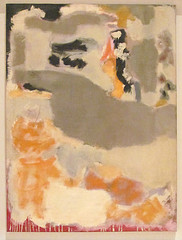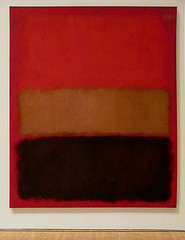 After losing her father, the painter Mark Rothko, to suicide and her mother to cardiovascular disease shortly after, the nineteen-year-old Kate Rothko Prizel thought she and her then-six-year-old brother would be fine. They were in the midst of the New York art world in the 1970’s, and she couldn’t imagine a better place to grow up.
After losing her father, the painter Mark Rothko, to suicide and her mother to cardiovascular disease shortly after, the nineteen-year-old Kate Rothko Prizel thought she and her then-six-year-old brother would be fine. They were in the midst of the New York art world in the 1970’s, and she couldn’t imagine a better place to grow up.
Her image of the bohemian culture changed dramatically, however, after witnessing a stark difference in her parents’ funerals, held just six months apart in the same funeral parlor.
“At my father’s funeral, people [critics, artists, and collectors] were pouring out of the woodwork,” Kate told The Guardian. “But I would have to question why they were there, because only about 10 people came to my mother’s. She’d known these people for 25 years, and now it was like she was… ‘ A footnote? ‘Yes. It was disillusioning for me to see the superficiality of the art world, and that has never gone away, I must admit. It will never be that idyllic place for me again.”
Following this, Kate and Christopher found themselves in an epic legal battle with the executor of their father’s estate and his gallery, which they alleged were trying to defraud them of their share. The legal battle went on for four years, and Kate didn’t even own one of her father’s paintings herself until seven years after his death — if she wanted to see them, she had to go to a gallery.
Kate and Christopher surprised everyone when they won the case. The gallery was found to be laundering art, and tons of famous paintings were pulled from its walls shortly after the Rothko case, including those of Jackson Pollock.
You can read the entire story here, and on this Father’s Day, enjoy some of Mark Rothko’s work and reflect on the daughter who is still mourning his loss — after years of battling for her right to enjoy this work and its fruits herself.



 Loss of a Famous Father
Loss of a Famous Father


 John Mulaney’s “Funeral Planning” on Netflix: No Real Plan
John Mulaney’s “Funeral Planning” on Netflix: No Real Plan

 Composting Bodies Is Now Legal in a Dozen States
Composting Bodies Is Now Legal in a Dozen States














